

WRITER’S AFFAIR
SEPTEMBER 2024

Foreword
Welcome to the insightful September Edition of the Writer’s Affair Magazine: an initiative by and for the students of TISB to provide a platform for their explorationoftheliteraryworld.
Thiseditionincludessomemarvelousworksofpoetryfrom our student body, as well as some thought-provoking commentaries that indicate the spirit of appreciation for literatureremainsaliveandwell!
Wefindourselvesendlesslyhonouredtobepartofsharing thesebeautifulworks,anditisourhopethatyoushallfind muchpleasureinyourreading.
Remain eager for our next issue! We shall continue to engage with and disseminate the writing of the talented peers belonging to our institution with the rest of the world.
“Noonewholoveslifecanignoreliterature,andnoone wholovesliteraturecanignorelife.”

Featuring:
1. Realm of Memories - Nishaal Jatinbhai Adroja
2. Universe Mirage - Dishita Atri Panchal
3. Picture Perfect - Anshika Singla
4. The Other Side of Silence - Tisha Ganguly
SEPTEMBER 2024
Realm of Memories
Where have we come, what have we become?
To a realm so plain yet so tainted, To a realm so real yet so augmented. The heart demands more, like a king begging for a dime. The heart does not grow old, from the path walked so many times.
Memories are vain, memories are pain. Yet memories we love, memories, a boon from above.
Tired, may our eyes be, they never stop reliving the past, Addicted to the past, fixated on the mere shadow that is cast.
Beware, in the realm of memories, fellow dreamer For it is an unruly landscape, with an entrancing demeanour. It is the realm of the Song of the Sirens, Where nostalgia holds us captive, not brittle tyrants.
Beware, fellow dreamer, do not let this beautiful absurdity Become who you are, do not let it rob you of your identity!
Everything you have witnessed, here, can be found No matter, whether it is set in stone, or in a distant sea, drowned. The waves of time leave their mark on the beach of memories. I, with my feet planted in the sand, washed with the waves, am left quivering.
Memories, sharp as a sponge, blunt as a blade, No matter how much time eats away, some never seem to fade…
UniverseMirage

Stars aligned in unorganised beauty
Cresting a glorious, dark orb of a small sky.
A distant star dies, leaving a mark of creation
On a golden hue, a canvas so ephemeral yet timeless.
A bonne lune, crescent, pink halo cradling its subtle glow Moonstruck, the blue-green land loses its orbit.
Earth’s graceful fall into the far luminous abyss
A graveyard of stars, blindly embraced. A quiet dream Universe Mirage.

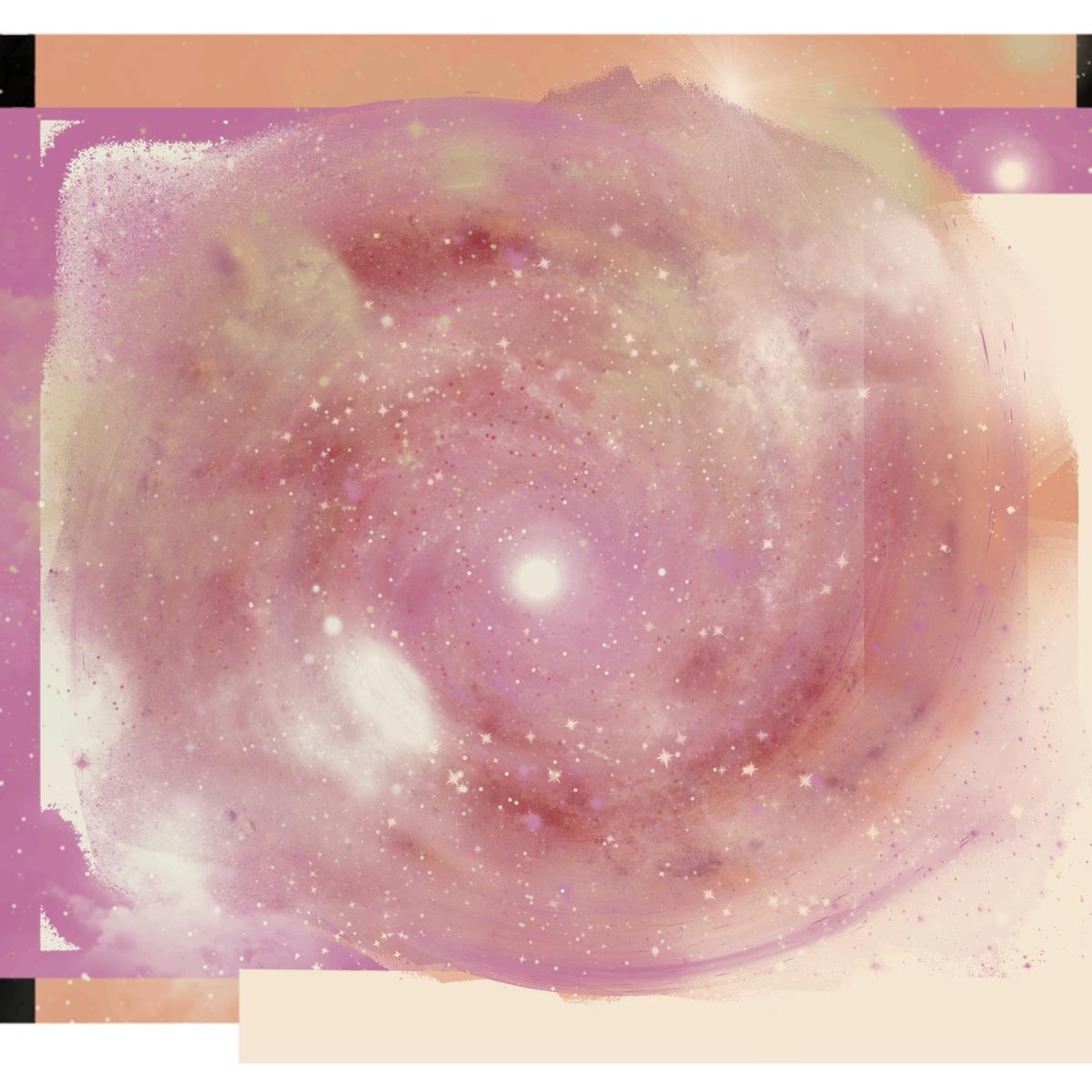

Picture-Perfect

It lay there picture-perfect
A dream held in a hand
Sparkles raining down
In cotton candy lands
It lay there flawless
A miniature fantasy
Joyful children running
In crystal clear breeze
It lay there delightful
A scene oh-so-bright
Unblemished and untouched
At least at first sight
It lay there gathering dust
A long-forgotten masterpiece
And underneath the surface
The illusion begins to cease
Now it lies there holding secrets
Cracked walls and sad eyes
A world beginning to crumble
Until all morality dies
It lies there speaking the truth
A reflection of reality
Of what we have become
As perfect as we may be
It lies there picture-perfect
A picture-perfect shell
Filled with rage and envy
All dressed up in pastel
Once, it lay there as a beginning
Showing what could be
Now it lies there picture-perfect
A perfect picture’s all it’ll be
The other side of silence
Long-suppressed, surged to the surface with the belligerence of a warrior, escaping the iron-walled confines of the meticulously devised guise that I had seen her coerce onto her features. I saw the way that it arduously entangled itself with every word she pieced together, with every thought she conjectured into reality, and with every feeling that coursed through her; It became her — even though she knew, and I knew, and I suppose we all knew, that she wasn’t anything or anyone ’ s to become.
I wish I could say that when she didn’t speak, her silence found solace in the pages ' embrace, and she described to them the distorted reality in which she dwelled.
I wish she had played for them a montage of its tyrannical talons severing the seams of her sanity. I wish she had shown them the vile gashes, ragged and raw, chiseled by twisted thoughts and mangled memories that it had manifested into actuality. I stood watching, my feet cemented into the ground, as it doused the flames of her spirit, imbibed the nectar of her soul, and stifled the vitality of her flesh.
I wish I could say that as she ventured down this obscure path, she carried with her a bag of breadcrumbs, leaving behind a trail for me to find when she’d been gone a while. But as we have all come to realize, in every path there is a point of no return, when the bag turns empty, and the trail ebbs into nothingness.
A special message to our principal...
Happy Birthday Dr. Caroline!
Unwritten - still - are the tender pages of this treasured tide, As the parchment crackles with echoes of joy and stride
A year unfolds, the cycle turns. The labyrinth of this tapestry unfurls.
A cosmic pirouette, a mortal's flight, With wanderlust in heart, you lead our pride. A gypsy soul, a nomad's home.
Across the lands, our footsteps roam, Giving us imprints carving spirits of gold,
From the deepest oceans to the anchor that lies within, Your presence finds us a second home to live in.
To the highest mountains, captured within the clouds, Because of you, we are found traversing peaks of valour, valleys of strength.
Resilience, embodied to overcome any length
The journeys we’ve tread, Following you through currents where rivers spread.
Your unmatched sagacity moulds our Trojan House, as your precious values pass on through every ounce. Our ethos roars with pride as you carve each stepping stone Interweaving the threads on our path to claim our throne.
We learn to row in this race for life. In this fight for legacy. In this quest to rise.
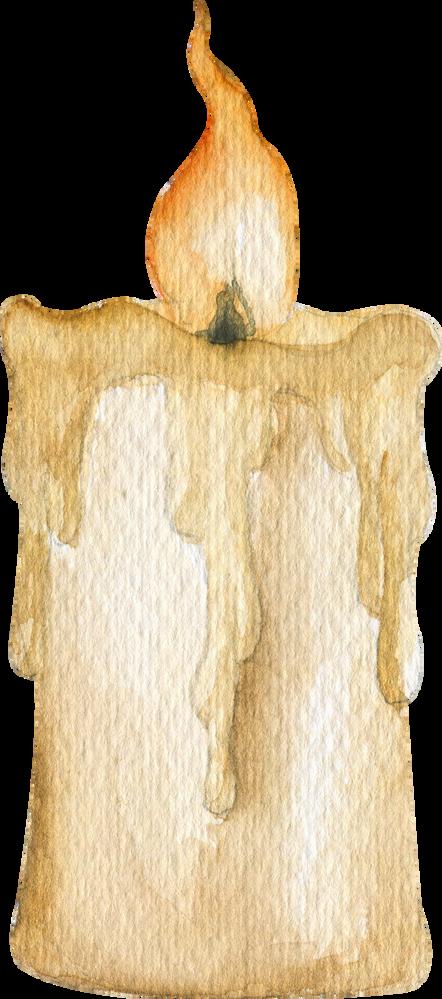
Prose

Presenting...
Checkmate - Vedika Sengupta
1. Metafiction and Memoir: Confession in A Heartbreaking Work of Staggering Genius - Keya Mehra 2.

SEPTEMBER 2024
Checkmate Checkmate Checkmate
Acheckeredboard.
Blackandwhite
Twosides,bothsteepedintheconvictionthatthebloodstainingthehardterrainis forthegreatergood,huddledintheirtrenches,shivering Thewindwhistledintheir ears,andfogbegantorollin
Apearlywhitecastleriskedapeekoverthehastilyassembledwoodenbarricades.
“Whitestartsthegame”,cameamalevoice,asitalwaysdid
AlltheWhitespaused,waitingforthechildishgiggletoechoacrosstheboard,and forthemassacretobegin Itcameafteramoment,loudandjarring,asitalways did
Pawnsscuttledovertotheirpositions,andtheKnights,tallandproud,gallopedover totheirs TheKing,alreadyweigheddownbytheimpendingloss,tookthehandof hisQueen,andledthemtotheirplace Hegazedather,ashealwaysdid,wishingfor acrackinhericyexterior,fortimetoturnbackandleavetheminpeaceinthatdark storageroom.Theblackveinsthreadingthroughherwhiteivorycrownwerejust anotherreminderofthehopelessnessofitall Thechildwouldnotwin,andher brotherwouldshownomercy
Hecouldquiteclearlyimaginethesituationontheotherside TheBlackswouldbe rejoicing,crackingjokesattheirexpense TheKingwassuretheywerecelebrating early,aperfectcontrasttothescenesurroundinghim.“YourHighness.”
HeturnedtofacetheBishop “Itisnearlytime”Sighing,heglancedattheQueen Grimdeterminationshoneinhereyes Hetriedtocallonsomeofitashefacedthe otherside.“Soletitbegin.”
VedikaSengupta VedikaSengupta VedikaSengupta
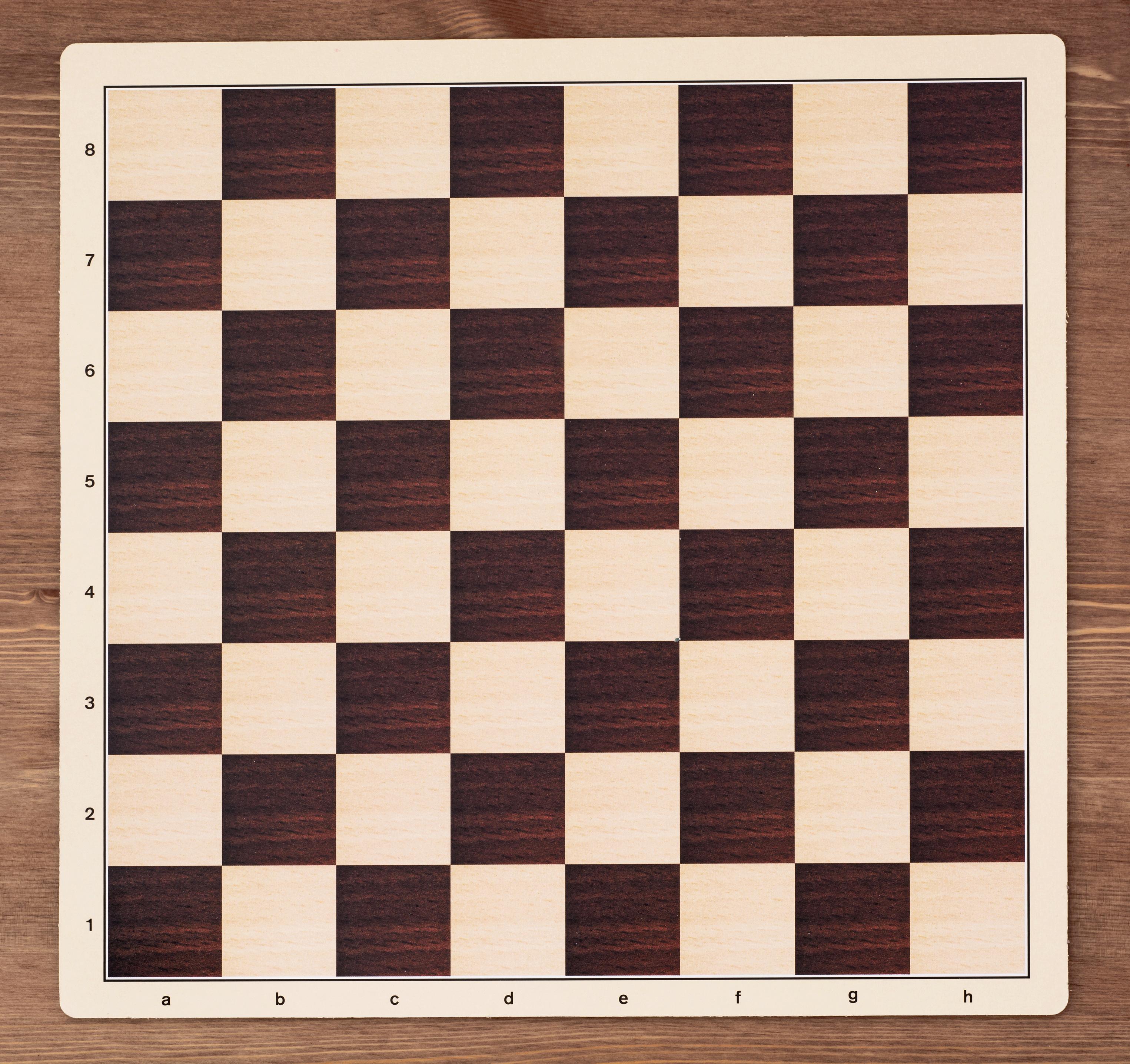
GENIUS KEYA MEHRA, GRADE 12
The reviews for Dave Eggers's A Heartbreaking Work of Staggering Genius are remarkably divided. It is "the worst book [you] cannot put down and the best book [you’ve] ever wanted to set on fire "
An appreciative review from The Washington Post lauds the memoir as a "comic and moving witness that transcends and transgresses formal boundaries." Eggers's running inner monologue painful self-admissions "cut from him with a dull spork" lays his soul 1 bare directly before the reader. Detractors, on the other hand, are ruffled by Eggers’s flashy verbal posturing, ‘’capable of drawing a cheap laugh" but amounting to little more than "admiration for bubbles" - a hollow exercise in self-examination for voyeuristic purposes. They complain, "I wish he'd stuck to telling the story instead of trying so hard to make me think he's a staggering genius."
The cause of such a divided reception can be attributed to Eggers's deliberate use of unconventional techniques that frequently accompany and often supersede the central narrative. He utilizes a range of extratextual devices to this end: marginalia, recursive annotations, interpretive guides, mock interviews, and consistent breaches of the fourth wall. While some critics contend that these strategies detract from the story, labelling the text "essentially unreadable," I assert that these digressions transcend mere selfindulgence Eggers’s grief is not obfuscated but rather intensified through these departures His ‘’guilty and brilliant’’ digressions are a means of self-absolution, sparing nothing, neither his medium nor himself. To overlook them would be to disregard the book’s very soul.
Eggers is both wearing his heart on his sleeve and scribbling in the margins His deviations serve several interconnected purposes: Eggers hopes to absolve himself of the guilt that comes with writing a memoir, of presenting perhaps inaccurately his trauma and identity as an object for consumption. He hopes, with only semi-conscious intent, to hide among these digressions, to distract us with a self-satisfied barrage of L.A. dystopian, postmodern half-wit so that we might forget that underneath it all is a man who has suffered staggering loss And maybe, just maybe, by confessing his sins, he might find a way to leave them behind
A Heartbreaking Work of Staggering Genius is an anecdotal and masterfully incomplete recounting of events. To describe his work, Eggers uses "nonfiction" and "memoir" interchangeably, deliberately avoiding the pedantic trappings of "autobiography " True to its form, the narrative is limited in scope, sidesteps straightforward chronology, and centres on the authors own experience and perceptions; Eggers revels in the unresolved and indefinite mess of his own ‘heartbreaking’ life. Yet, the novel simultaneously transcends the typical boundaries of a memoir. It is, for want of a better term, a "metamemoir" a text so acutely self-conscious that it continuously reflects upon its own narrative process In fact, it is so self-admittedly conscious of its fictionalization that very little within its pages is stated without being subsequently reconsidered, qualified, or said again with a different nuance.
Eggers acknowledges that the stories of his life once externalized through writing no longer belong to him in the same intimate way; he transfers ownership of these experiences to the reader. This is done not only by sharing his life with the reader but also by acknowledging that the narrative is a construct, shaped as much by his readers’ interpretations as by the flaws of his own retellings The metafiction, therefore, mirrors the memoir’s confessional purpose: both are acts of self-exposure that ultimately free the author, from the weight of personal experience but also from the authority of being the sole, trustworthy storyteller. The skin is no longer his, ‘’he wore it because it grew from him, but then it dried and slipped off and he and everyone could look at it.
Similarly, the near-death experiences Eggers faces his own excruciating kidney stone episode, Shalini’s coma after a head injury, and John’s suicide attempt act as a sort of turning point, a shedding of skin. His inability to retrieve his parents' ashes stands as a symbol of his unfinished process of mourning. Is it this guilt he is confessing? Eggers reflects on the ambiguity that had previously comforted him:
"I had loved how vague it was before. Where are they? Well, that’s a good question. Where were they buried? Another interesting question That was the beauty of my father’s way. We knew that he had been diagnosed, but not how sick he was. We knew that he was in the hospital, but then not how close he was. It had always felt strangely appropriate, and his departure was made complete, as was hers, by the fact that the ashes never found us in California, that we had moved, and moved again, and again, dodging, weaving."
For the first time, Eggers confronts his unresolved emotions surrounding the death of his parents without retreating behind his self-conscious veneer. It is only in the penultimate paragraph that the protective layer of metafictional elements is fully stripped away His narrative "dodging and weaving" has been both geographical and structural, but here the narrative shifts becoming more direct, more unfiltered, as though Eggers has reached a point where his grief and guilt no longer require the mediation of irony or meta-commentary. The book ends with an ejaculation of words and sentiment: anger and happiness and sadness and expectations. His sharing, even in caricatured or condensed form to dilute the pain and bitterness. And maybe, in their witnessing of his pain, the reader might themselves find release. A gift.
The book culminates with his final breaking of the fourth wall, as he addresses the reader for the last time: “Oh, I’m not going to fix you, John, or any of you people. I tried about a million times to fix you, but it was so wrong for me to want to save you because I only wanted to eat you to make me stronger, I only wanted to devour all of you, I was a cancer Oh but I do this for you. ”
“Don’t you know that I’m trying to pump blood to you, that this is for you ”
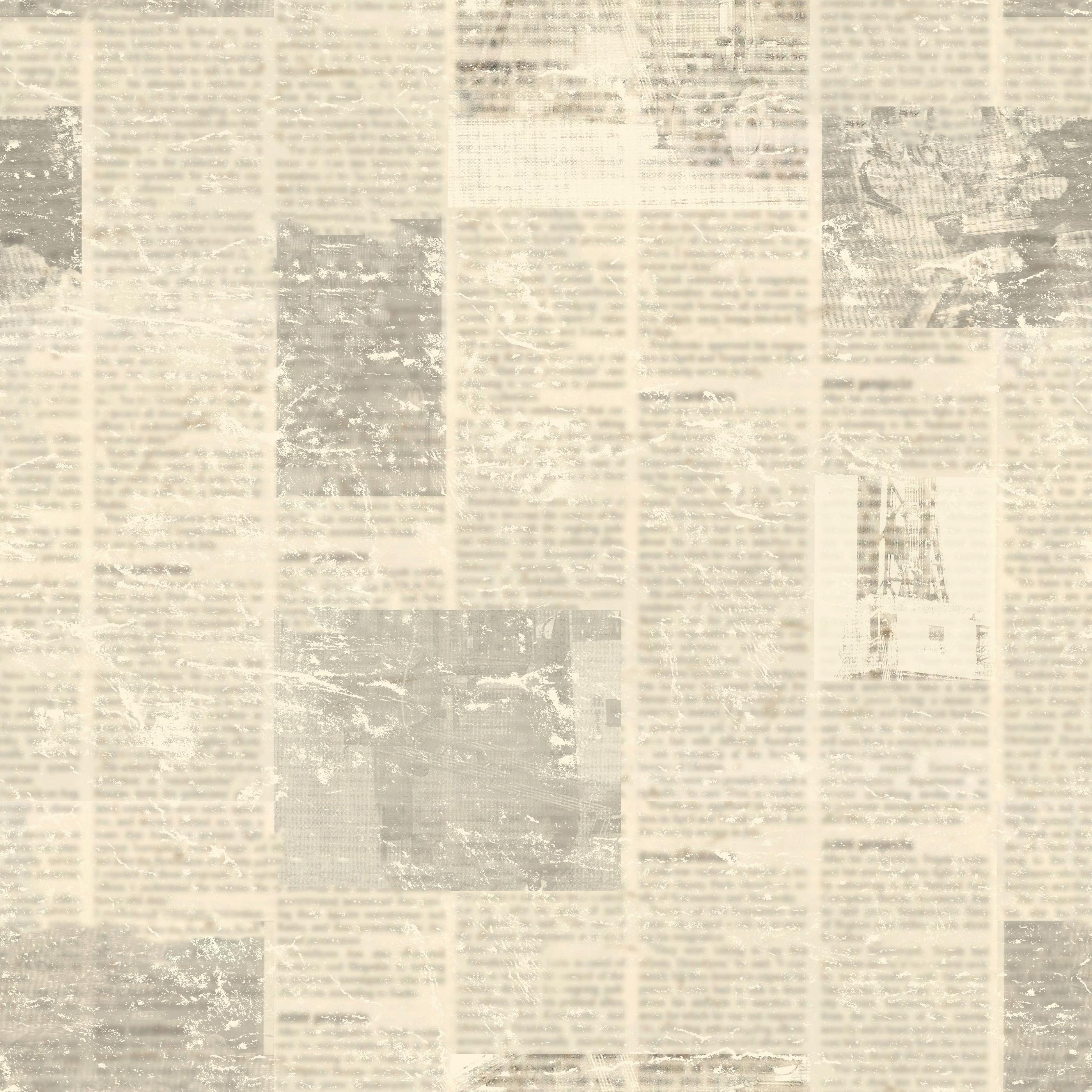
EDITORS’ CORNER
EDITORS’ CORNER
EDITORS’ CORNER
EDITORS’ CORNER
EDITORS’ CORNER
EDITORS’ CORNER
EDITORS’ CORNER
Love Tale
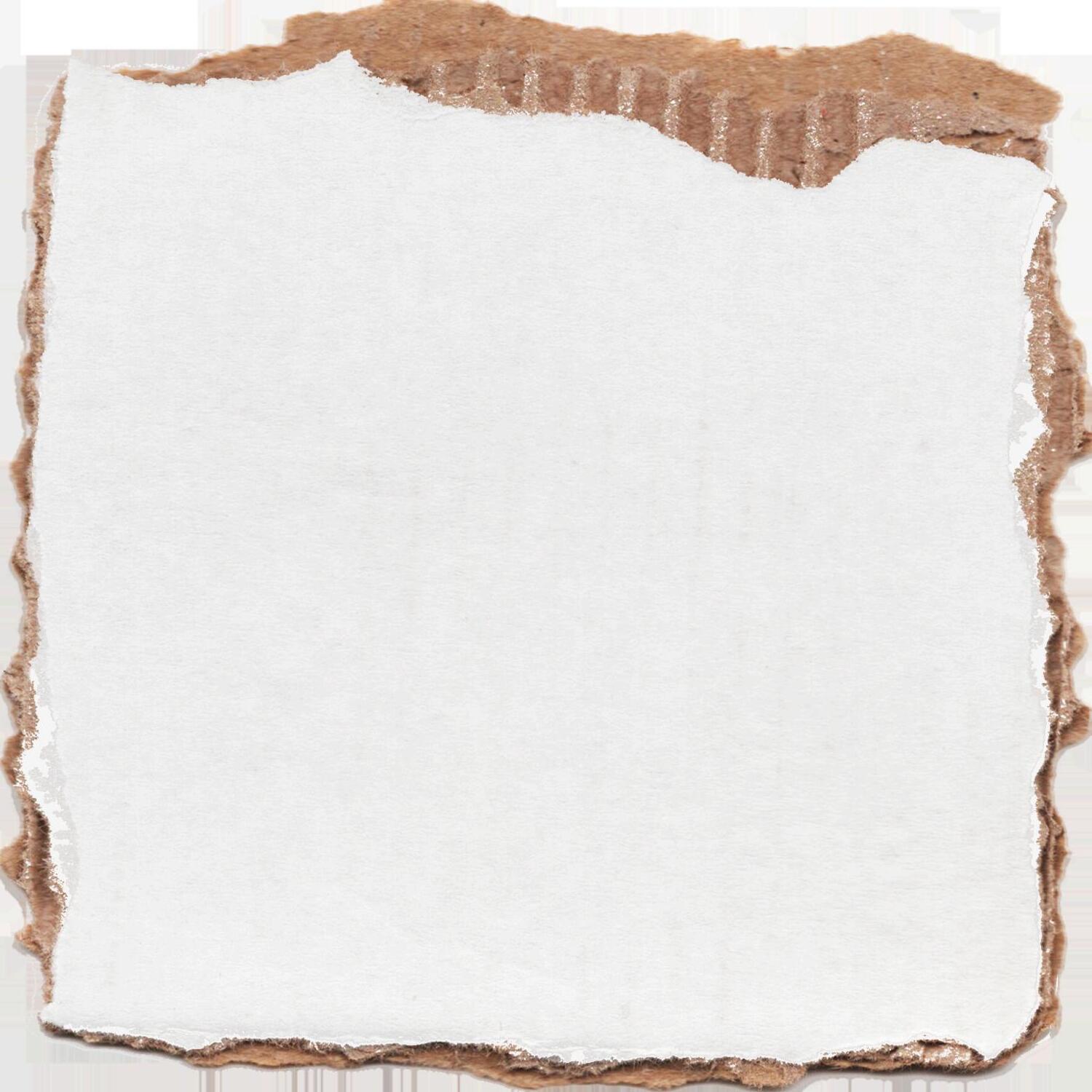
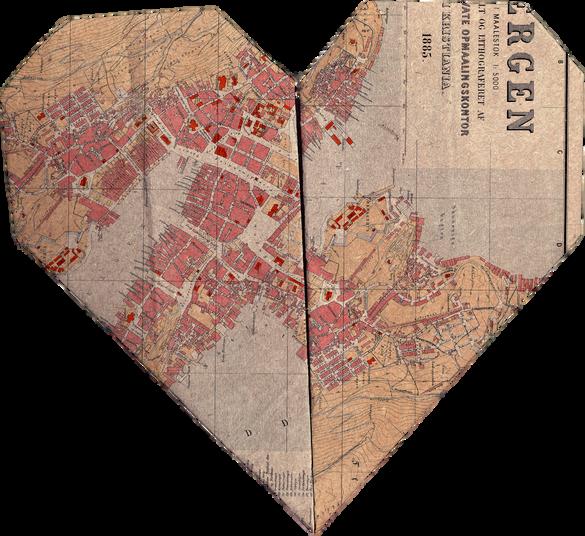
Honeymoon printed pages the journal is flipped through the yellow ochre leaves with inky blots blue.
From the salty tears stained to the rosy pink cheeks and the ruby red lips marooned by the week.
The old printed pages I found as a child Plastered in poetry of love tales for miles Blessed is the soul who lies down below who served his country through fire and snow;
His lady awaited him decades ago while writing this book with her heart set aglow
A crimson kiss sealed to the yellowing page that got brittler with jaundice as she counted the days
Only to return as a body with eyes that never read the letters but stared to the skies through dew-soddened grass atop layers of dirt, she kept the journal nestled under one of his shirts.
SUCH A DAMSEL
Forwearethearethebrainiestofthebrains, Wewriteandread-annotateverseandpoesy, WefixandreplaceourpartsandpiecesSomethingeventhemightycreatorscouldn’tdo
Andwesitandponder, Hereyeyonder, Tillwewriteourselves, intoplaceswithnoends
Thebrainiestofthebrains, Mustonlydealinabstractions, Endlesslyendlessfields
Andthinningthinnerpaint
Forwearethegreatestofthegreats
Andmakersofourfamousfate
Whilethatlow-bornhummingbird, Bearsitscurse
It’spetitemind, Canonlyhumalullaby
Herheartbeats, Loudandlive, Andshespeaks
Withnoreason-justrhyme
Getupandgetdown, Flutter-huminthesky, Liveliveforestgreen
Suchadamsel, Ideem
“Suchadamsel” Wescream
A MOONLITLIFE P
Unable to sleep, I walk into the woods Suddenly, above the highest peak, the full moon appears - Excerpt from a poem by Ryokan
If there was one thing Subha has learned over the many decades of her life, it was that a full moon was always to be feared
So, when she sits outside on the veranda, facing a lake, clutching fiercely at a book (She wanted to read it, she really did! But her eyes could not make out more than vague splotchy scribbles) and once more encounters the enormous orb illuminating the ash-grey sky with its ghostly silver, she begins to think.
She had been born on such a day countless years ago (even as she tried to grasp for a number, it slipped through her hands like sand) when, in a small village of little repute, she had emerged into the world. As if balancing some universal scale, her mother exited a day after. They never had any photographs of her. All Subha knew of her mother were little stories her father would grace her with on rare evenings. She could almost smell the cardamom in his chai (which he religiously prepared every day from the day he turned 10 to the day he passed) as he would regale her with stories of how he had wooed her mother, how she had taught him and only him her secret recipe for-the word eludes her-what was it?
A metallic clang breaks her reverie. It’s only a steel plate. She sighs. She has often thought that her daughter-in-law could use steadier fingers Of course, she’s hardly one to talk, having been barred from boiling water or even chopping vegetables after her hands had begun their tremors. There was perhaps nothing else about aging that she found more humiliating.
She remembers being with her father when he too felt the brunt of growing old. As though like repayment for what he had done for her when she was a toddler, she became his caretaker It had pained her deeply to watch him reduced to this, but perhaps it had pained him more.
“You must marry,” he had said one day, over their evening chai. “I have found someone who you will like He is a good man ”
Subha had been angry then (How could he demand that he leave her?) but said nothing. Only nodded. She acquiesced to his demands and met the man.
Roy was convenient to her; of this, there was no doubt. He was kind, he earned well, he lived in a city, and he was a lively conversationalist. Of all the men she might have had to spend her life with, he was decidedly not one of the worst ones She did not love him
“Let marriage come first,” her father had said, “Love will follow.”
She had asked him then. “Must life be so painful?”
He had smiled, and they spoke nothing more
When Subha was married, it was on a full moon night.
It was true, yes, that life with Roy was not as unfulfilling as she had anticipated She recalls a time when he had, bursting with exuberance, brought home a bag full of Jazz records. She had playfully asked him why he never expressed the same delight over music from their own country. He had responded…well, it must have been something witty because she has a memory seared into her brain of toppling over in peals of laughter. (One of those little tunes has wormed its way into her head, and she finds herself humming it on the veranda.)
They had a child, and like her mother, she would give birth with the Moon proudly disc-shaped in the sky. The birth itself was mercifully free of complications. The day…she would soon discover that her husband’s life was lost in a car crash. Sometimes the sick irony of the situation had her giggling hysterically ‘It was almost magical’ she had thought, ‘Some greater force must have a cruel sense of humor’.
Though it had been a bit hard to get by, she was able to earn, and they lived modestly Her father had grown morose, old, haggard, and forgetful; some days he couldn’t remember her name. She wondered later if her marriage was meant to be more advantageous to him so that he wouldn’t have to suffer the humiliation of his grey-years in her presence At her age now, as she sits staring at the stygian lake before her, she couldn’t say that she didn’t understand the sentiment. Kindly, when her father passed, it would only be a waxing gibbous moon.
These were old memories, ones which she had narrated to her son long ago. He had said, half-jokingly, that perhaps the moon was just trying to keep her company through all of this. As she looks at the moon, still humming that same old song, she wonders whether the luminous sphere was in fact so kind
Her granddaughter has come outside, curiously sniffing at the air around her. She gapes, mouth pulling open wide revealing a missing tooth, points, and exclaims, ‘That’s a frog!’ Subha looks in the direction she’s pointing in It was indeed a bullfrog, giant and olive-colored. For a second, she feels as though its bulbous black eyes meet her own brown ones. Splash! It was gone. The sound is soon followed by a slam as her granddaughter goes back inside.
Now the wizened woman peers into the lake. The reflection of that same old silver circle stared back at her In its light she sees a brief glimmer of a fish, she hears the distinctive twirp of the katydids, she smells petrichor from the damp grass, and she tastes a hint of melancholy in the chilly breeze. She will go to bed in a few minutes, and when she awakes, the Full Moon shall be gone.
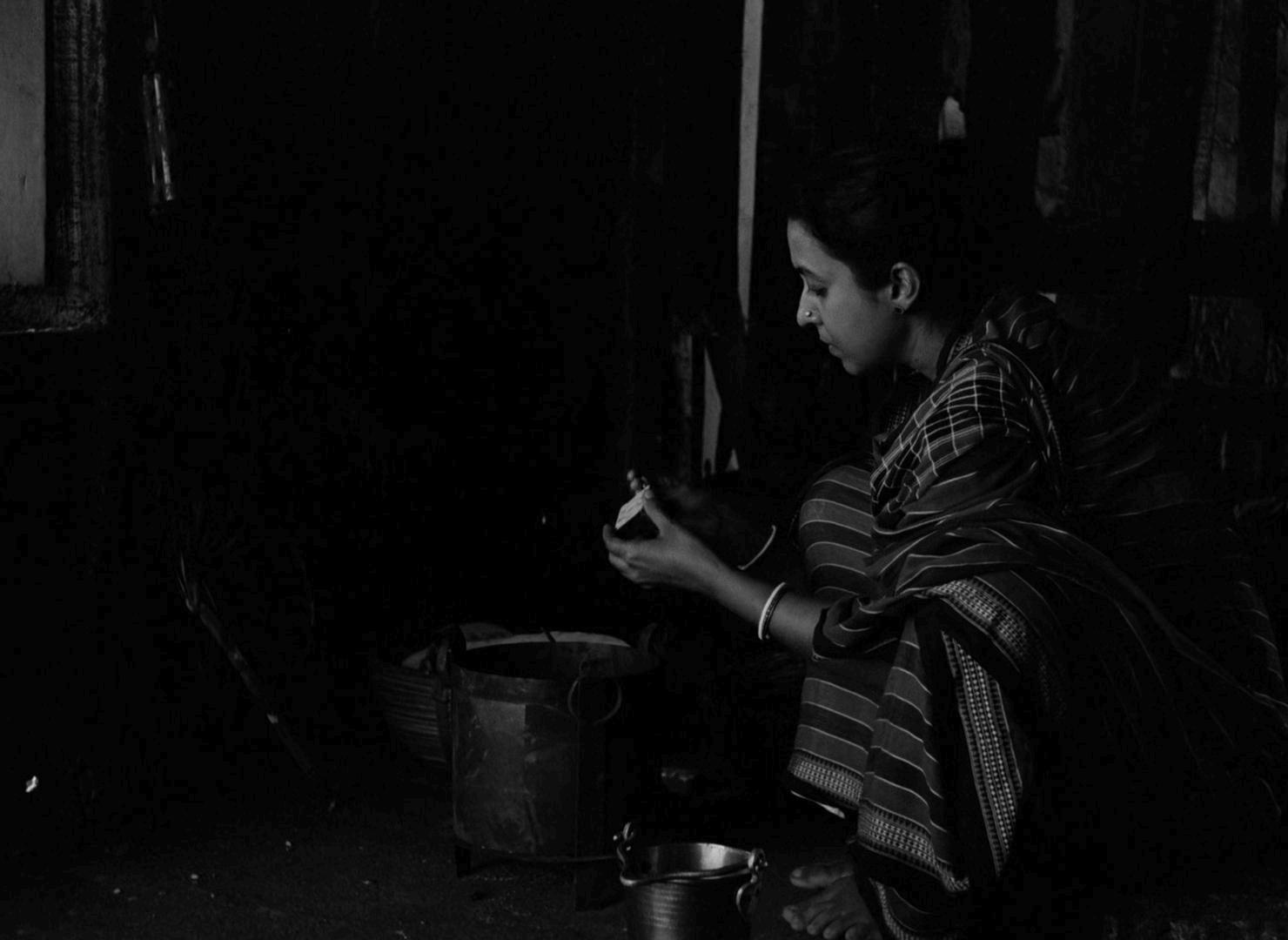
(Picture taken from “Aparajito”(1956), Dir. Satyajit Ray)


Credits
Chief Editors:
Aanika Krishnan
Ananya Ravishankar

Aditya Sankar

Contributors:
Nishaal Jatinbhai Adroja
Dishita Atri Panchal
Anshika Singla
Tisha Ganguly
Spurti Aluru
Vedika Sengupta
Keya Mehra


Special Thanks to Ms.
Velina Murari, our Teacher Advisor


